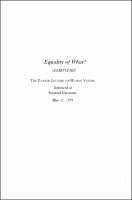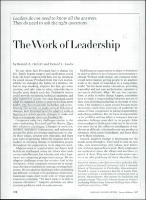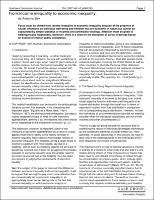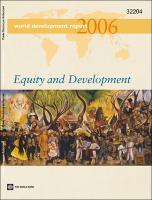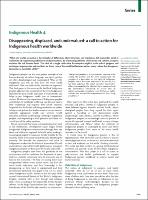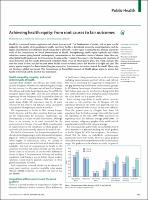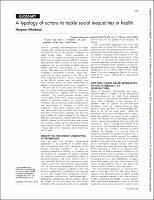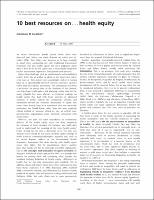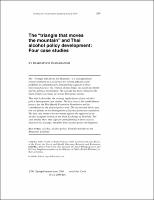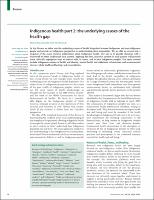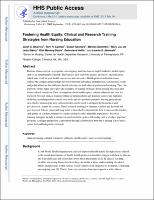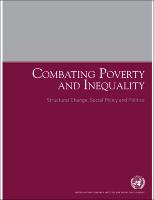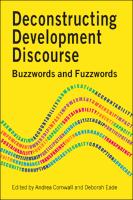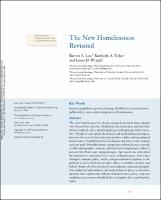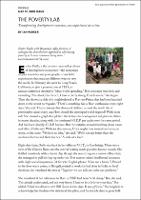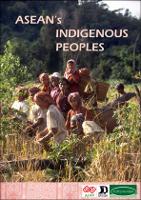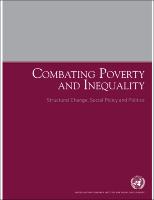Browsing by Issue Date
Now showing items 1-20 of 299
-
Equality of What?
(Cambridge: Cambridge University Press., 1979)
Well-being is not just a question of the wealth or pleasure that a person has; it is a question of how people manage to live their lives and the ability they have to do certain things that are important to them. This was the argument put forward by Professor Amartya Sen in 1979. In his seminal Tanner Lecture – ‘Equality of What?’, Sen unites economics and philosophy to explore how a person’s well-being might best be measured. It was the first in a series of writings in which he developed his capability approach. This focuses on the actual capability ... -
The work of leadership
(Harvard Business School Publishing, 1997)
To stay alive, Jack Pritchard had to change his life. Triple bypass surgery and medication could help, the heart surgeon told him, but no technical fix could release Pritchard from his own responsibility for changing the habits of a lifetime. He had to stop smoking, improve his diet, get some exercise, and take time to relax, remembering to breathe more deeply each day. Pritchard’s doctor could provide sustaining technical expertise and take supportive action, but only Pritchard could adapt his ingrained habits to improve his long-term health. ... -
From income inequality to economic inequality.
(Southern Economic Journal, 1997)
Focus must be shifted from income inequality to economic inequality because of the presence of causal influences on individual well-being and freedom that are economic in nature but cannot be expounded by simple statistics of incomes and commodity holdings. Attention must be given to heterogeneous magnitudes. Moreover, there is a need for the derivation of partial orderings based on explicit or implicit public acceptance. -
World Development Report 2006: Equity and Development
(World Bank Publications, 2005)
The World Development Report 2006: Equity and Opportunitypresents a social development strategy organized around the themes of social inclusion, cohesion, and accountability. It examines equality of opportunities--a potentially important factor affecting both the workings of the investment environment and the empowerment of the poor--by building on and extending existing accountability frameworks presented in the 2005Report. -
Achieving health equity: from root causes to fair outcomes
(The Lancet, 2007) -
A typology of actions to tackle social inequalities in health
(Journal of Epidemiology & Community Health, 2007) -
10 best resources on ... health equity
(Oxford University Press in association with The London School of Hygiene and Tropical Medicine, 2007)
An astute bureaucratic pundit named Rufus Miles once observed that ‘where you stand depends on where you sit’ (Miles 1978). This ‘Miles Law’ deserves to be kept centrally in mind when considering not only traditional bureaucratic behaviour, but also health equity; for one's judgment about what's ‘best’ in the health equity area is unavoidably shaped by his/her institutional experience, background and interests.Rather than challenge such an unfortunately well-established reality, better for an author to admit at the outset just where (s)he has ... -
What is public narrative?
(2008) -
The “Triangle That Moves the Mountain” and Thai Alcohol Policy Development: Four Case Studies
(Contemporary Drug Problems, 2009)
The “Triangle that Moves the Mountain” is a conceptualized strategy initiated as a social tool for solving difficult social problems, by simultaneously strengthening capacity in three interrelated sectors: (1) creation of knowledge; (2) social movement; and (3) political involvement. The concept has been claimed as the basis of many successes in various Thai policy arenas. This article describes the strategy implications of four alcohol policy development case studies. The first case is the establishment process for the Thai Health Promotion ... -
Indigenous health part 2: the underlying causes of the health gap
(The Lancet, 2009) -
Fostering Health Equity: Clinical and Research Training Strategies from Nursing Education
(The Kaohsiung Journal of Medical Sciences, 2009)
Racism, ethnocentrism, segregation, stereotyping, and classism are tightly linked to health equity and social determinants of health. They lead to lack of power, money, resources, and education which may result in poor health care access and outcomes. Health profession faculties must address the complex relationships that exist between individual, interpersonal, institutional, social and political factors that influence health outcomes in both clinical and research training. Thus, the purposes of this paper are to provide examples of training ... -
Regional strategy on health system strengthening and primary health care
(Manila : WHO Regional Office for the Western Pacific, 2010) -
Combating poverty and inequality: structural change, social policy and politics
(United Nations Research Institute for Social Development, 2010)
Poverty reduction is a central feature of the international development agenda and contemporary poverty reduction strategies increasingly focus on “targeting the poor”, yet poverty and inequality remain intractable foes. Combating Poverty and Inequality argues that this is because many current approaches to reducing poverty and inequality fail to consider key institutional, policy and political dimensions that may be both causes of poverty and inequality, and obstacles to their reduction. Moreover, when a substantial proportion of a country’s ... -
Deconstructing development discourse: buzzwords and fuzzwords
(Practical Action Pub. ; Oxfam, 2010)
"Writing from diverse locations, contributors critically examine some of the key terms in current development discourse. Why should language matter to those who are doing development? Surely, there are more urgent things to do than sit around mulling over semantics? But language does matter. Whether emptied of their original meaning, essentially vacuous, or hotly contested, the language of development not only shapes our imagined worlds, but also justifies interventions in real people's lives. If development buzzwords conceal ideological differences ... -
The New Homelessness Revisited
(Annual Review of Sociology, 2010)
The new homelessness has drawn sustained attention from scholars over the past three decades. Definitional inconsistencies and data limitations rendered early work during this period largely speculative in nature. Thanks to conceptual, theoretical, and methodological progress, however, the research literature now provides a fuller understanding of homelessness. Contributions by sociologists and other social scientists since the mid-1990s differentiate among types of homelessness, provide credible demographic estimates, and show how being homeless ... -
ASEAN's Indigenous Peoples
(AIPP,IWGIA,FORUM-ASIA, 2010)
Indigenous Peoples are not at all mentioned or referred to in any ASEAN document, even though they are an integral part of the ASEAN Community and among its most vulnerable sectors, whose interest the ASEAN has committed itself to protect. The failure of the ASEAN to address the plight of its Indigenous Peoples despite its expressed commitment to human rights and social justice is a shortcoming that needs to be corrected urgently. Unless Indigenous Peoples are fully recognized as integral part of a culturally diverse ASEAN, and unless Indigenous ... -
Combating poverty and inequality: structural change, social policy and politics
(United Nations Research Institute for Social Development, 2010)
Poverty reduction is a central feature of the international development agenda and contemporary poverty reduction strategies increasingly focus on “targeting the poor”, yet poverty and inequality remain intractable foes. Combating Poverty and Inequality argues that this is because many current approaches to reducing poverty and inequality fail to consider key institutional, policy and political dimensions that may be both causes of poverty and inequality, and obstacles to their reduction. Moreover, when a substantial proportion of a country’s ...

